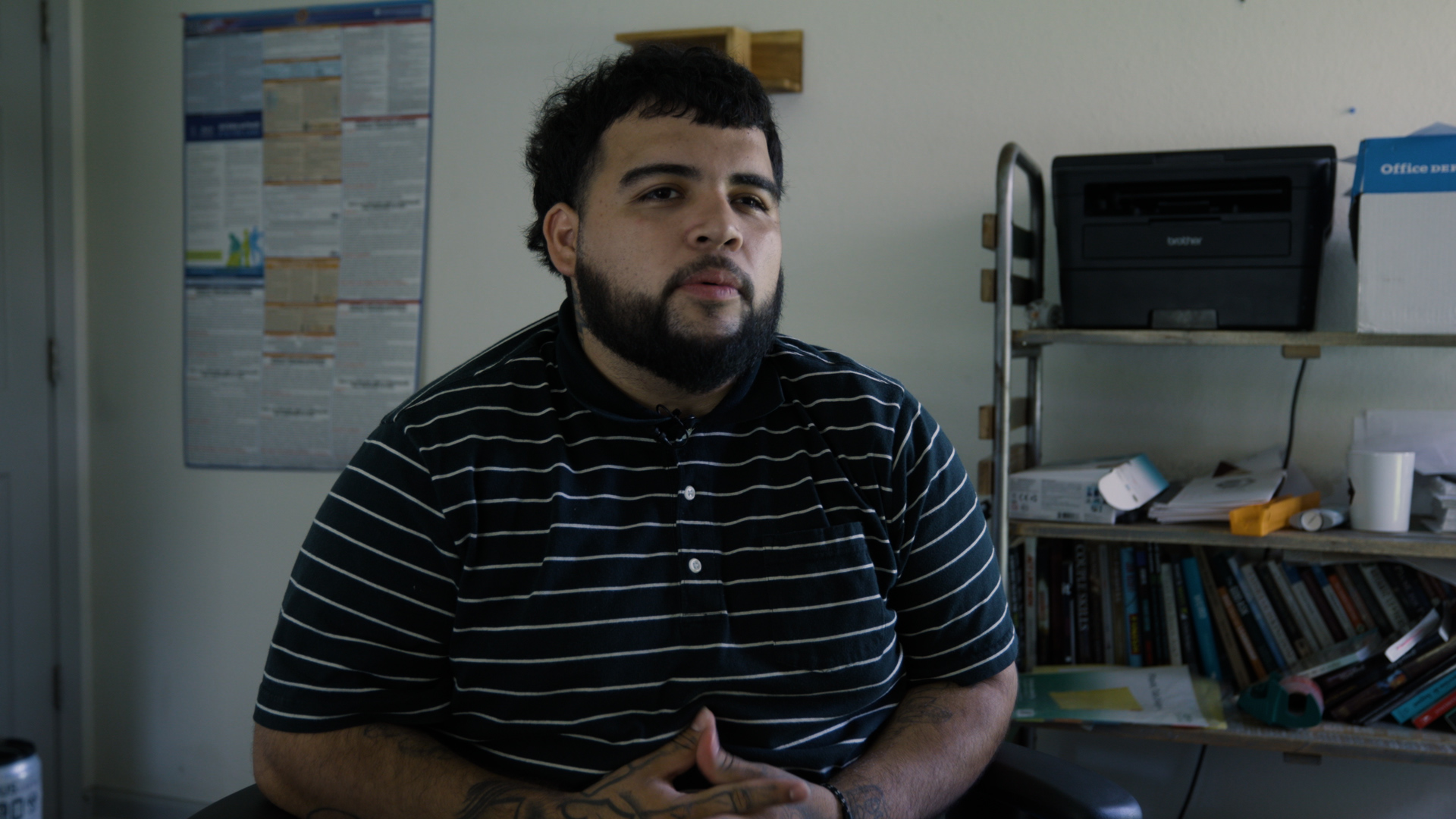Jails, Not Jobs
“I didn't get down with no gang members, but I was definitely affiliated with them.”
That’s how John Paez describes his teenage years. He watched friends slide into using and selling drugs, joining gangs and committing robbery. It wasn’t long before Paez joined in.
“I thought I was slick with it until I turned 17,” Paez says. “That's when I hit the county.”
While in Kansas, Paez stole a car. He was eventually caught and sentenced to 18 months, but the fallout of that action would hound him for years. After getting released, Paez says he would submit masses of job applications. But employers balked at his criminal background.
John Paez served 18 months for stealing a car. Afterwards he had a difficult time securing a job.
“I would tell them, ‘I am not that person no more, I'm trying to change,’” Paez says. “They would tell me, like, ‘oh, we always hear that. And then people, they never really change.’”
This was not only discouraging for Paez. It was a problem that could have landed him back in prison. Across Texas, probationers and parolees must pay fines for various administrative costs tied to their release. Failure to pay these fines can eventually land an individual in jail or back to prison. But advocates say many former inmates are struggling to just secure housing, much less secure stable employment. Between this rock and a hard place, they say, is where many probationers and parolees commit new crimes that can also land them back in prison.
Fees can vary across the country and across the state. In Texas, parolees or those under mandatory supervision must pay a $10 parole supervision fee and an $8 administrative fee each month. If a parolee is required to wear an electronic monitor, it can cost them anywhere from $5 to $25, depending on the type of device. Judges or parole boards may require a person to take classes, which they will have to pay for. In Travis County, classes usually cost $74 to $185. If an attendee can’t make it, rescheduling fees can run from $10 to $75. Failure to pay these fees can count as probation or parole violations, according to Abel Lopez. He’s the director of ATX Peace, a program that operates as a branch of Jail To Jobs.
“Violations are, you didn't do this, we said this last month that we set this up as a goal that you needed to accomplish, or you didn't pay these, you didn't take this class because you couldn't afford it,” Lopez says. “Eventually, they’re like, ‘man, next visit, I’m going to get locked up.’”
There are some differences between parole and probation violations. A judge can offer probation instead of jail time to someone who’s convicted of a crime. They’re required to meet certain terms of their probation, which can include classes, drug tests and community service. Parole terms are offered to individuals who are serving time in prison. If they meet eligibility requirements, a parole board may opt to let them serve the remainder of their sentence outside of prison. Parole boards can also require electronic monitoring and classes that the parolee would have to pay for.
“This is where the survival comes in,” Lopez says.
The Texas Department of Criminal Justice said in a statement that warrants are not issued for non-payment of fees, nor are individuals arrested for non-payment. Some fees are waived if a person is defined as indigent. Probation fees can also be waived. The probation system is decentralized and policies on payments may vary from court to court. But TDCJ stated that there is no statutory charge for failure to pay probation fees.
But finding work to pay these fees can be difficult. According to a Bureau of Justice Statistics report, it took about 6 months for formerly incarcerated people to find work. Over 33% found no work during the four-year study.
This is where Jail to Jobs comes in.
“We help them get their birth certificate, social [security card], their ID,” Lopez says. The group connects participants with the Travis County Medical Access Program, or MAP. They help participants sign up for food assistance. Since Jail to Jobs works with participants under 25, they also connect with other programs in town to make sure older probationers or parolees don’t fall through the cracks. Most importantly to Lopez is getting them on a career path.
“I feel like if we can put them in that path that they'll have a better opportunity to be able to be successfully established,” Lopez says.
And numbers back that. The recidivism rate for the state of Texas is considered low, at just over 20%. The rate for Jail to Jobs participants is lower, at 17%.
But the program offers more than just job training and resources. For Paez, Jail to Jobs also means a supportive community.
“You talk to most people and they hear what you've done, [they think] ‘I don’t want to be around that dude, maybe he's still like that,’” Paez says. “But these dudes, it’s a judgment free zone, they joke around with you, they help you. They're shoulder to lean on.”
Community journalism doesn’t happen without community support.
Got story ideas, advice on how we can improve our reporting or just want to know more about what we do? Reach out to us at news@klru.org.
And if you value this type of reporting, then please consider making a donation to Austin PBS. Your gift makes the quality journalism done by the Decibel team possible. Thank you for your contribution.
More in Politics:
See all Politics posts






Contact Us
Email us at news@klru.org